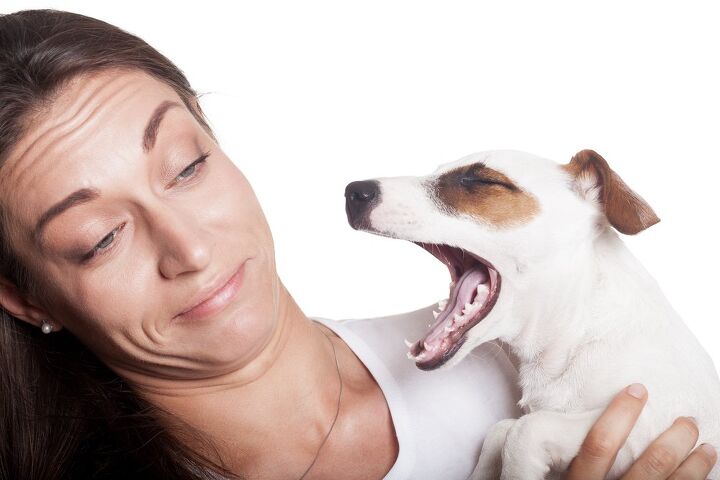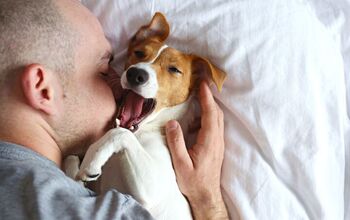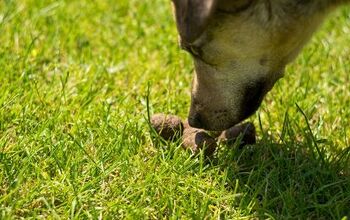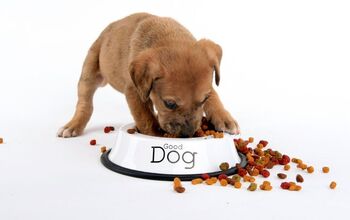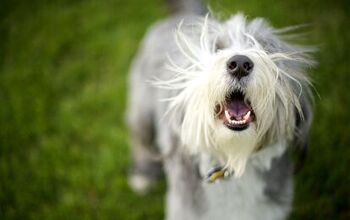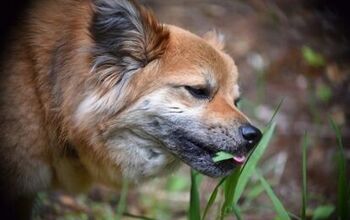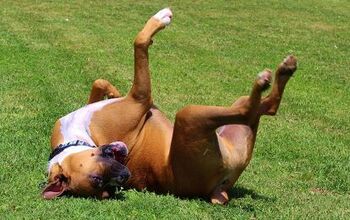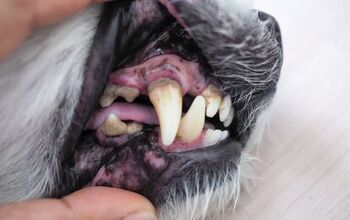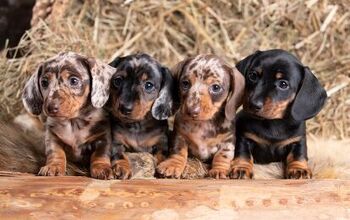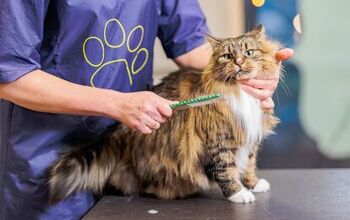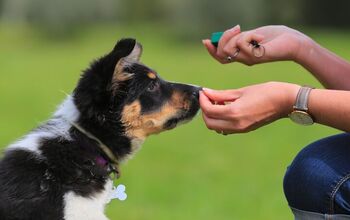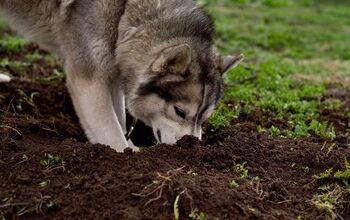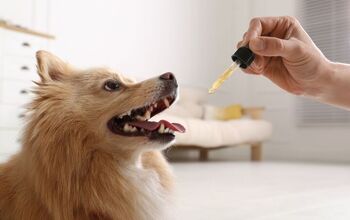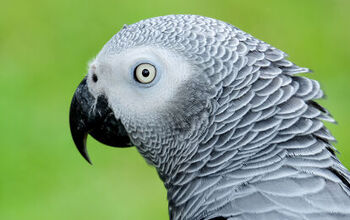Why Does My Dog’s Breath Stink?

As much as you love it when your dog gives you kisses, dog breath can sometimes ruin the experience. Dogs are not particularly well-known for having good breath, but you shouldn’t accept bad breath as the norm. There are varying degrees of the stinkiness, and sometimes, it’s not just eau the doggo we’re talking about here: it can be an underlying medical issue that’s causing the overpowering odor.
Of course, it’s not just medical issues that could worsen the smell of your dog’s breath. Their lifestyle counts, too- your dog’s diet plays a key role in determining the freshness of his breath, and how often you brush his teeth can affect it as well. So, if you want to make sure your puppy’s smooches are minty fresh (or as close as possible to it), you have to know what’s causing the foul odor in the first place- and then treat the issue at hand.
Related: Is Your Dog’s Bad Breath Telling You Something About Their Health?
If your dog chows down on a pile of trash or feasts on his own poop, you shouldn’t be surprised if his breath is less-than-fresh afterward. I mean, it’s plain logic! However, if bad breath is a frequent problem for your dog, there could be something going on under the surface. Here are the top 6 reasons dogs have bad breath:
- Dental Disease – Periodontal disease is incredibly common in dogs, affecting more than 50% of dogs by the time they reach their third birthday. Small breeds are even more susceptible to oral health problems and far more likely to develop dental diseases, although no pooch is immune. Dental disease comes in several forms ranging from infection to gum disease to tooth decay. If your dog’s gums are red and inflamed, or if you can see tartar buildup on his teeth, it’s likely dental disease that’s causing his bad breath.
- Kidney Disease – Your dog’s kidneys are responsible for filtering toxins out of his blood but if his kidneys aren’t working well, it could lead to an accumulation of ammonia in his breath. In other words- if your pet’s breath smells like pee, take him to a vet immediately.
Related: Barking Bad Breath Dog Biscuit Recipe
- Toxic Ingestion – Dogs have a tendency to eat things they shouldn’t eat and sometimes those things are toxic. Some of the most dangerous toxins for dogs include things like antifreeze and rodenticide – if your dog’s breath smells like either one, contact your veterinarian right away.
- Diabetes – It may come as a surprise to you to learn that dogs can develop diabetes just as humans can. Diabetes is characterized by high blood sugar which can give your dog’s breath a sweet, fruity smell. It may not be entirely unpleasant, but poorly managed diabetes can lead to bacterial overgrowth in the mouth which could affect his breath.
- Oral Tumors – Tumors in your dog’s mouth can affect his breath by affecting blood circulation, leading to dead areas where bacteria are able to take over. These tumors can range in size and shape, so if you notice any discoloration or masses in your dog’s mouth, talk to your vet.
- Poor Diet – The quality of your dog’s diet affects everything from his health to his breath. Dry food is best for keeping your dog’s teeth clean because it helps scrape plaque and tartar off the surface of the teeth as he chews. You should also include plenty of water in your dog’s diet because hydration is important for good oral hygiene.
If your dog has bad breath and your vet ruled out an underlying medical issue as a cause, there are a few things you can try to remedy it. The first thing to focus on is maintaining good oral hygiene. Brushing will stave off dental diseases by preventing plaque and bacteria buildup, and in turn, make your pet’s bad breath go away. Regularly brush your pet’s teeth with a toothbrush and toothpaste designed for canines (they are flavored so they make the process pet-friendlier, but they’re often scented for instant breath-freshening action). Ideally, you’d brush your pet’s teeth on a daily basis, but doing it at least 3 times a week will suffice. You can introduce dental chew toys and treats for removing plaque, but they can’t replace regular brushing- just enhance its effects. There are many options to choose from: from edible chews to flavored textured toys that will scrape away tartar. Unfortunately, for some dogs, professional teeth cleaning might be required to remove all that tartar build up- consult your vet to see if your pet is a candidate for this.
Another thing to notice is your pet’s diet. Steer clear from cheap foods full of fillers that could be causing your pet’s bad breath and a myriad of other health issues. If the flora in your pet’s gut is unbalanced, it could be detrimental for their digestive and overall health, and the overgrowth of bad bacteria in your dog’s GI tract could be responsible for the stinkiness of his breath. To remedy this, switch your pet to a high-quality diet and put him on probiotics. Just be sure not to use human supplements- dog probiotics are specially designed for canines and their unique needs and will boost the growth of beneficial microorganisms that your pet needs to stay healthy.
Finally, if you want to make your pet’s breath fresh on a daily basis, try water additives. In addition to proper oral hygiene and a good diet, they can help deodorize your pet’s breath and further support his dental health. Just pour some in your pet’s drinking water and they’ll have a minty fresh breath that will make pooch smooches a real treat.

Kate Barrington is the loving owner of two cats (Bagel and Munchkin) and a noisy herd of guinea pigs. Having grown up with golden retrievers, Kate has a great deal of experience with dogs but labels herself a lover of all pets. Having received a Bachelor's degree in English, Kate has combined her love for pets and her passion for writing to create her own freelance writing business, specializing in the pet niche.
More by Kate Barrington



